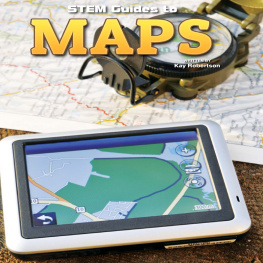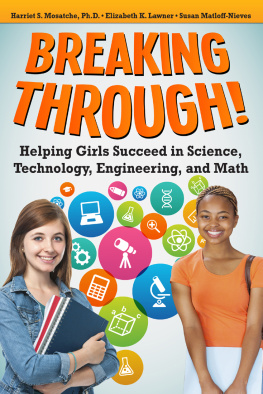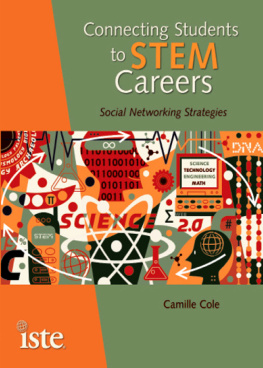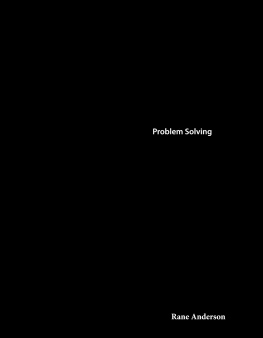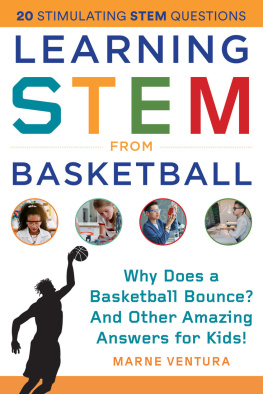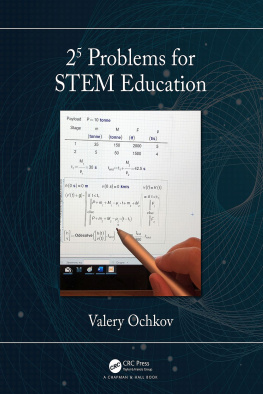One Nation Under-Taught
Solving Americas Science, Technology, Engineering & Math Crisis
Dr. Vince M. Bertram

Copyright 2014 by Dr. Vince M. Bertram
FIRST EDITION
All rights reserved. No part of this book may be reproduced in any form or by any electronic or mechanical means, including information storage and retrieval systems, without permission in writing from the publisher, except by a reviewer who may quote brief passages in a review.
Library of Congress Cataloging-in-Publication Data on file
ISBN: 9780825307447
For inquiries about volume orders, please contact:
Beaufort Books
27 West 20th Street, Suite 1102
New York, NY 10011
Published in the United States by Beaufort Books
www.beaufortbooks.com
Distributed by Midpoint Trade Books
www.midpointtrade.com
Printed in the United States of America
Interior design by Vally Sharpe
Educate and inform the whole massesThey are the only sure reliance of the preservation of our liberty.
Thomas Jefferson
Contents
Foreword
by Steve Forbes
As a nation, we have known for decades that our K-12 education system is in serious trouble, that our students routinely lag their counterparts in numerous other countries in language and mathematical skills. This is especially worrisome in an era in which high tech is becoming more and more critically important for advancing economically. That millions of our children are not being taught effectivelyor at allin the crucial areas of science, technology, engineering and math, popularized by the acronym STEM, is a moral outrage. Their opportunities to get ahead, to improve their lot in life, as Abraham Lincoln put it, are being seriously harmed and our future well-being as a nation is being jeopardized.
Thankfully, America has a tradition dating back to Colonial times of not being passive when serious challenges arise. Vince Bertram is a splendid example of this can-do, lets-roll-up-our-sleeves-and-do-something-about-it characteristic. His organization, Project Lead The Way (PLTW), has been tackling the STEM deficiencies in our primary and secondary schools for a decade and a half. PLTW has become the leading provider in the U.S. of STEM programs for kids in grades K-12. In addition to coming up with world-class curriculums Dr. Bertram and his colleagues have created superb professional development programs for teachers. More than 6,000 schools around the country have benefitted from PLTWs crucial work.
Dr. Bertram understands that its not enough to come up with solutions, that you must also actively work with students, parents, teachers, administrators, parents, universities, businesses and foundations, as well as community and government leaders to affect lasting, positive change. Interacting with all partiesbrainstorming, if you willcan also generate new ideas on how to move forward.
While PLTW has made powerful contributions, so much more remains to be done throughout the nation. Hence, the crying need for Vince Bertrams new book. It couldnt be more timely, as recognition of our STEM educational deficits is growing. Dr. Bertram brings immense knowledge and expertise to the subject and speaks from frontline experience.
Dr. Bertram lays out the irrefutable evidence of the crisis: of how, since the mid-1960s, American students have been slipping in what they actually learn in our schools, especially in the STEM fields. According to the National Assessment of Education Progress, only 26 percent of American high school seniors in 2010 scored at or above the proficiency level in math. More ominously, a staggering 36 percent had failing scores. Worse, only 3 percent scored at an advanced level in math, and a pitiful 1percent in science.
No wonder so few U.S.-educated high school students go on to pursue STEM courses in college. No wonder our high-tech centers, epitomized by Silicon Valley, must recruit literally hundreds of thousands of foreign-educated people to try to fulfill their needs for skill-based workforces. Even with that, huge gaps remain, which is why companies have to set up facilities overseas to meet their requirements.
All of which, of course, begs the question: Why dont our schools do a better job?
Its not as if we dont know we have an enormous problem. Back in 1983, the state of education had gotten so bad that the then relatively new Department of Education released a report titled A Nation at Risk. The ominous opening words from that report were powerful and tough and are worth re-quoting at length:
Our Nation is at risk. Our once unchallenged preeminence in commerce, industry, science, and technological innovation is being overtaken by competitors throughout the world. This report is concerned with only one of the many causes and dimensions of the problem, but it is the one that undergirds American prosperity, security, and civility. We report to the American people that the educational foundations of our society are being presently eroded by a rising tide of mediocrity that threatens our very future as a Nation and a people. What was unimaginable a generation ago has begun to occurothers are matching and surpassing our educational attainments.
If an unfriendly foreign power had attempted to impose on America the mediocre educational performance that exists today, we might well have viewed it as an act of war. As it stands, we have allowed this to happen to ourselves. We have even squandered the gains in student achievement made in the wake of the Sputnik challenge. Moreover, we have dismantled essential support systems which helped make those gains possible. We have, in effect, been committing an act of unthinking, unilateral educational disarmament.
Our society and its educational institutions seem to have lost sight of the basic purposes of schooling, and of the high expectations and disciplined effort needed to attain them.
Alas, while we have poured immense sums into our education bureaucracies, these increased resources have had little or no effect. We experimented with reforms that were as bad in conception as they were in reality. And we continued to adjust down to mediocrityor worse. As those numbers from the National Assessment of Education Progress attest, our students scores over the past generations have been, as education expert Chester Finn Jr. put it, Flat, flat, flat.
We largely failed in fighting back against this rising tide of mediocrity. Mediocrity does not sustain itself: One is either advancing or sliding backward. Its been said that what goes on in a nations classrooms will eventually work its way up to a nations governance and economy. We see that, we live with that today.
Of course, we have pockets of excellence in some of our nations schoolsDr. Bertram and his team have been immensely helpful here. But they are pockets, not the norm. Too many of our students drop out of STEM fields, seeing them as boring or too difficult, and this aversion starts in the early elementary grades.
Its here that we get to what makes Dr. Bertrams book such a timely gem and an exciting contribution. Vince Bertram does far more than lament our predicament. He provides a blueprint for enabling students to fall in love with STEM subjectssubjects that dont have to be dreary or intimidating. He shows how teachers can break away from the rut of traditional teaching and kindle in kids that inspiring curiosity that will lead them to becoming passionate about learning.
Dr. Bertram is no armchair reformer. Hes been in the trenches as a teacher, principal and superintendent. Through PLTW he has implemented programs that actually work. And, very importantly, his programs have equipped teachers with the intellectual and practical tools necessary to teach STEM subjects well. Students quickly come to see the true relevance of these subjects in todays world. They become inspired.


